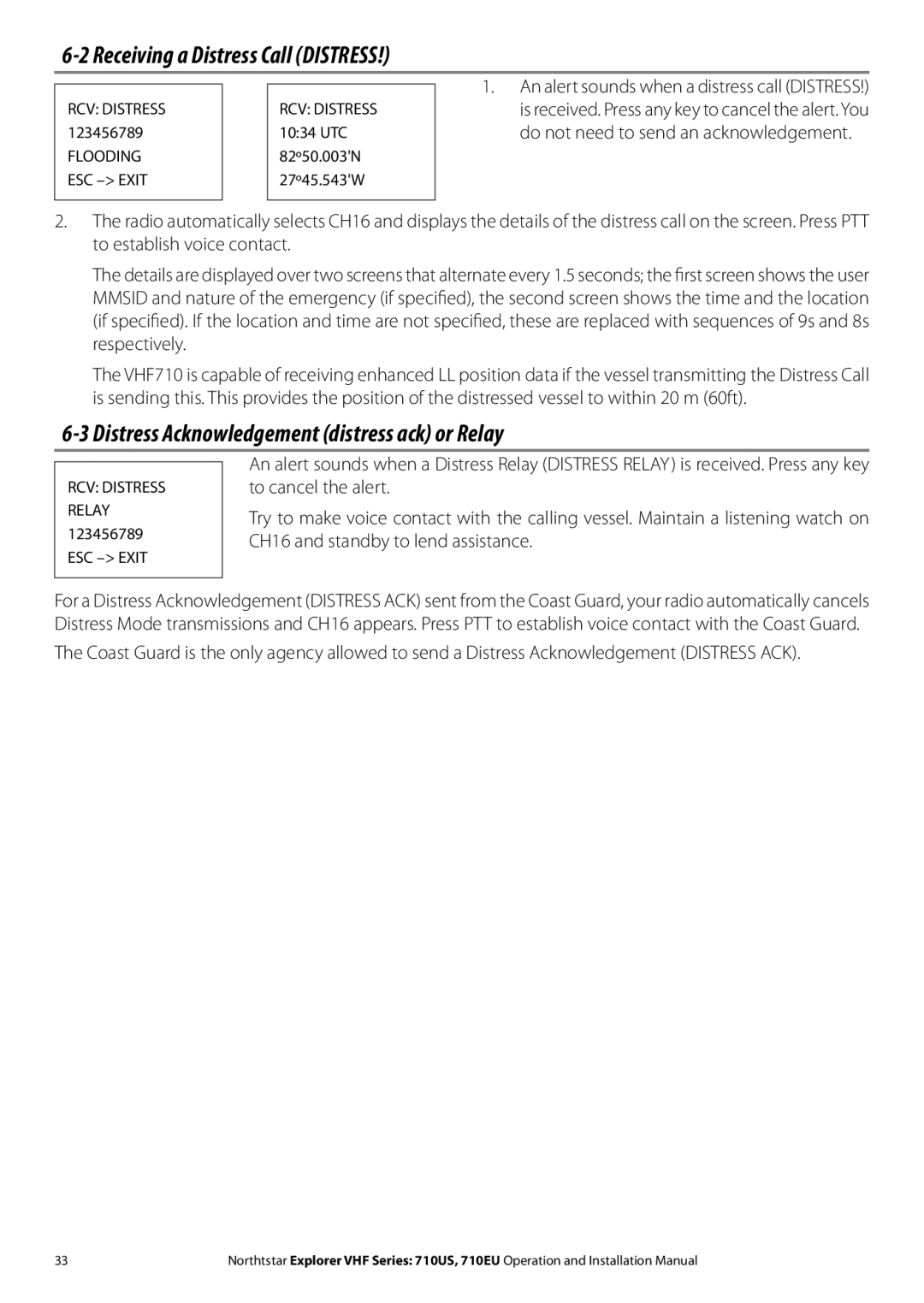
6-2 Receiving a Distress Call (DISTRESS!)
RCV: DISTRESS
123456789
FLOODING
ESC –> EXIT
RCV: DISTRESS
10:34 UTC
82º50.003'N
27º45.543'W
1.An alert sounds when a distress call (DISTRESS!) is received. Press any key to cancel the alert. You do not need to send an acknowledgement.
2.The radio automatically selects CH16 and displays the details of the distress call on the screen. Press PTT to establish voice contact.
The details are displayed over two screens that alternate every 1.5 seconds; the first screen shows the user MMSID and nature of the emergency (if specified), the second screen shows the time and the location (if specified). If the location and time are not specified, these are replaced with sequences of 9s and 8s respectively.
The VHF710 is capable of receiving enhanced LL position data if the vessel transmitting the Distress Call is sending this. This provides the position of the distressed vessel to within 20 m (60ft).
6-3 Distress Acknowledgement (distress ack) or Relay
RCV: DISTRESS
RELAY
123456789
ESC
An alert sounds when a Distress Relay (DISTRESS RELAY) is received. Press any key to cancel the alert.
Try to make voice contact with the calling vessel. Maintain a listening watch on CH16 and standby to lend assistance.
For a Distress Acknowledgement (DISTRESS ACK) sent from the Coast Guard, your radio automatically cancels Distress Mode transmissions and CH16 appears. Press PTT to establish voice contact with the Coast Guard.
The Coast Guard is the only agency allowed to send a Distress Acknowledgement (DISTRESS ACK).
33 | Northtstar Explorer VHF Series: 710US, 710EU Operation and Installation Manual |
